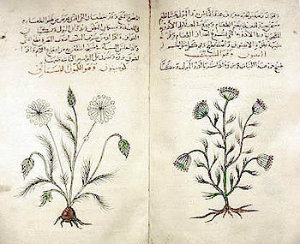Summary | Excerpt | Reviews | Beyond the book | Read-Alikes | Genres & Themes | Author Bio

In this chilling historical mystery, young girls go missing from a medieval English village and Lord Oswald de Lacy must find the killer before tragedy strikes again.
Oswald de Lacy was never meant to be the Lord of Somerhill Manor. Despatched to a monastery at the age of seven, sent back at seventeen when his father and two older brothers are killed by the Plague, Oswald has no experience of running an estate. He finds the years of pestilence and neglect have changed the old place dramatically, not to mention the attitude of the surviving peasants.
Yet some things never change. Oswald's mother remains the powerful matriarch of the family, and his sister Clemence simmers in the background, dangerous and unmarried.
Before he can do anything, Oswald is confronted by the shocking death of a young woman, Alison Starvecrow. The ambitious village priest claims that Alison was killed by a band of demonic dog-headed men. Oswald is certain this is nonsense, but proving it - by finding the real murderer - is quite a different matter. Every step he takes seems to lead Oswald deeper into a dark maze of political intrigue, family secrets and violent strife.
And then the body of another girl is found.
Sarah Sykes brilliantly evokes the landscape and people of medieval Kent in this thrillingly suspenseful debut.
Part of the pleasure in a historical mystery, of course, comes from the ambience of the time and place, and Oswald is a lyrical observer of the local color of his world, whether he's waxing poetic about the bucolic landscape ("the rain gave way to a fan of sunlight") or the texture of a plague pit ("creaking and bony mattress of death"). Sykes gives us plenty of medieval terminology to enjoy, including litanies of lovely-sounding archaic herbs with aromatic and medical uses. The scenery is richly imagined too – the manor houses and village hovels alike have seen better days. As pleasurable as Sykes' sense of the comic is, it feels at times as though the light tone of the narrative undermines the weight of the sinister events unfolding. The nefarious characters are at risk of seeming more like caricatures than actual threats, and the suspense is more tickling than spine-tingling...continued
Full Review
(710 words)
This review is available to non-members for a limited time. For full access,
become a member today.
(Reviewed by Jennifer G Wilder).
As Oswald, the hero of Plague Land tells it, most fourteenth-century medical practices were hit-or-miss experiments, with the misses resulting in dead patients and blood everywhere. The spread of the Great Mortality (Bubonic plague, or as it was later known, "The Black Death") inspired all manner of medical trial and error, as Europe struggled to stay ahead of the speedy and deadly epidemic.
 Herbal medicine was often the first, and the last, line of defense available. Herbs were expected to function in a basic capacity as a sort of aromatherapeutic defense against contagion. If sickness came from bad air, a pomander or posy of good-smelling stuff like cloves, lemon balm, or mint just might keep it at bay. If you couldn't smell it, ...
Herbal medicine was often the first, and the last, line of defense available. Herbs were expected to function in a basic capacity as a sort of aromatherapeutic defense against contagion. If sickness came from bad air, a pomander or posy of good-smelling stuff like cloves, lemon balm, or mint just might keep it at bay. If you couldn't smell it, ...
This "beyond the book" feature is available to non-members for a limited time. Join today for full access.

If you liked Plague Land, try these:

by Benet Brandreth
Published 2019
Shakespeare in Love meets C. J. Sansom in a historical thriller with a swashbuckling twist - and a hero as you've never seen him before.

by Conn Iggulden
Published 2019
From New York Times bestselling Conn Iggulden comes a new novel set in the red-blooded days of Anglo-Saxon England. This is the original game for the English throne.
The truth does not change according to our ability to stomach it
Click Here to find out who said this, as well as discovering other famous literary quotes!